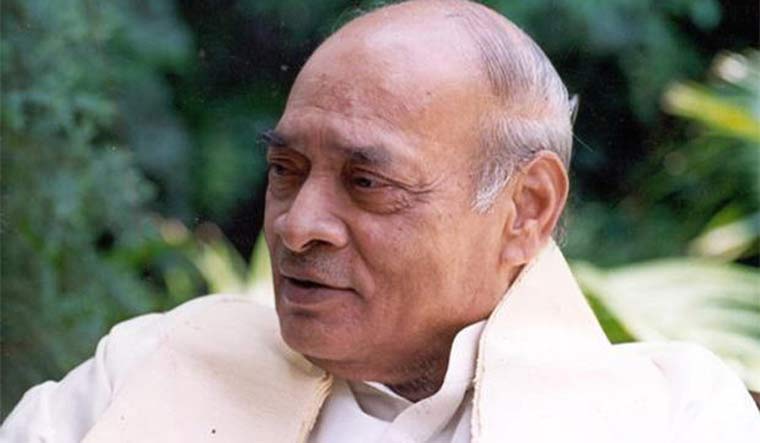P.V. Narasimha Rao was ready to ride off into the sunset when he was pulled into political limelight by the untimely death of Rajiv Gandhi in 1991. He had packed his bags to go back to his hometown Warangal. But his stay in Delhi got a way lot longer as he was soon sworn in as the prime minister.
Rao was aware that he was not a popular choice for the prime minister's post. The seasoned politician knew that he was an accidental prime minister. Even as he headed a minority government, he had to deal with persistent dissension from within the party, and those he had beaten in the race to the top post kept creating hurdles in his way, the most significant of them being the wily Arjun Singh. And there was always the shadow of 10, Janpath looming large.
However, Rao is remembered for having used his political shrewdness and sagacity in negotiating his way through some extremely difficult issues. The former prime minister was known to be an intellectual and is said to have brought a scholarly vision to the table. He is best remembered for having developed the ability to stay low profile and under the radar into a fine art. He had the penchant for choosing silence when people around him desperately wanted him to make his views known as a leader. Many found it frustrating and criticised him for being indecisive, while others said the indecision was also a way of dealing with complicated issues.
Rao did not have the appeal of a mass leader. Where he lacked in charisma, he made up for abundantly in political shrewdness that helped him run a minority government for five years.
When he took over as the prime minister, the country was in deep economic crisis. The credit for opening up of the Indian economy and thereby reviving it and placing it on a growth trajectory goes to him as much to Manmohan Singh who, as the finance minister in Rao's cabinet, brought in liberalisation. Rao had to brave opposition to the reforms from not just the political opponents but also from within the party. He gave Manmohan the political cover to make the bold economic moves.
Another of Rao's achievements was the handling of militancy in Punjab. He did not indulge in any grandstanding but quietly and steadfastly brought the state back on track electorally. The voting percentage was just over 20 per cent, and killings by militants increased. However, by the end of his term in 1996, Punjab was a much more peaceful place.
The former prime minister's effectiveness also was due to his ability to reach out to leaders across the aisle. This was most evident in the manner in which he defeated Pakistan's bid to internationalise the Kashmir issue. Pakistan had tabled a resolution in the United Nations Human Rights Commission, and this came in the backdrop of the United States terming it a dispute. Rao formed a delegation led by his political opponent Atal Bihari Vajpayee. And in a bid to discredit Pakistan's accusations of persecution of Muslims in Kashmir, he packed the team with leaders such as Salman Khurshid, E. Ahamed, Farooq Abdullah and Hamid Ansari. Manmohan Singh, too, was sent to the UN to fight the diplomatic battle since he was held in high regard there.
The demolition of the Babri Masjid on December 6, 1992, however, is a blot on Rao's prime ministerial years, and he has been charged by his critics with mishandling of the issue.
On his 99th birth anniversary, as his home state rolls out a year long centenary celebration, Rao's legacy, underrated and played down by his own party, is quite like himself – silent, low profile and yet effective.



